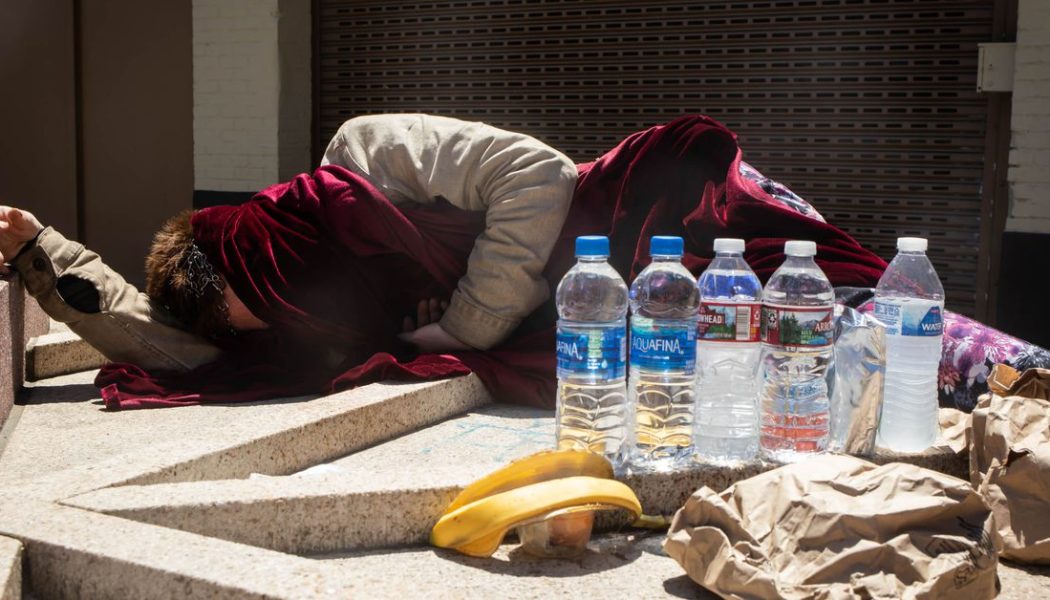/cdn.vox-cdn.com/uploads/chorus_asset/file/24139289/1233720577.jpg)
We can clearly see how big of a toll heat takes on health and employment around the world, thanks to a comprehensive new climate report from The Lancet medical journal. More people are dying during brutal heat spells. Scorching temperatures are also causing people to lose work.
As our planet runs a fever, hotter summers raise the risk of heat illness and chip away at people’s livelihoods. Some groups of people are more vulnerable because of their age, employment, and housing, as well as a legacy of discriminatory policies that have stacked the cards against them.
Heat-related deaths globally rose 68 percent in the period between 2017 and 2021 compared to 2000–2004 among people older than 65, according to the Lancet report published today. Things were even worse in the US, where extreme heat is already the number one weather-related killer. Over the same time period, heat-related deaths for adults above 65 years old rose 74 percent. On average, older adults in America each lived through three more heatwave days a year between 2012 and 2021 than they did between 1986 and 2005.
Extreme heat is already the number one weather-related killer
“[That] was particularly striking to me,” Natasha DeJarnett, co-lead author of a US policy brief accompanying the Lancet report and an assistant professor of medicine at the University of Louisville, said in a press briefing for the report.
“When we think of climate change and we think of the populations that bear the highest burden — those being older adults and children, communities of color, impoverished or low-wealth communities, and Indigenous communities here in the US — these groups are those that contribute least to this crisis, but they bear the heaviest burden.”
Communities of color and lower-income neighborhoods in the US are more likely to lie within “urban heat islands,” which can be some of the most dangerous places to be in the middle of a heatwave. That’s because urban sprawl — especially where there are more highways, high rises, and industrial infrastructure — traps heat, making these heat islands several degrees hotter than surrounding areas that have more trees and plants. In the US, this is one of the lasting legacies of racist housing policies that “redlined” and segregated neighborhoods.
Adding more green spaces to cities is a key strategy for preventing heat deaths. But only 27 percent of some 1,000 global urban centers assessed globally in the Lancet report were at least “moderately green” in 2021.
“These groups are those that contribute least to this crisis, but they bear the heaviest burden.”
Soaring temperatures can also be especially hard for folks who work outdoors when it comes to both their physical health and the ability to work at all. In 2021, 470 billion potential work hours were lost worldwide, the report finds. That adds up to income losses equivalent to about .72 percent of global economic output.
Zooming in on the US, Americans lost $68 billion in potential income in 2021 because of extreme heat cutting into work hours. That represents a 36 percent rise in lost labor hours that year compared to the average during the 1990s.
In June of last year, North America experienced what researchers ultimately determined to be its “most extreme” heatwave on record, thanks to climate change. The heat spell was especially severe in the Pacific Northwest, where the stifling heat buckled roads and drove a spike in emergency department visits.
“Unfortunately, I think my colleagues and I know that when we walk into an emergency department in the middle of yet more record-breaking heatwaves, we know that we are in for a challenging shift,” Renee Salas, Yerby Fellow at Harvard Chan C-CHANGE and attending physician in the Department of Emergency Medicine, said in the press briefing. An international group of health experts collaborates each year to publish the annual climate report, called The Lancet Countdown, to assess the health risks growing with climate change.









